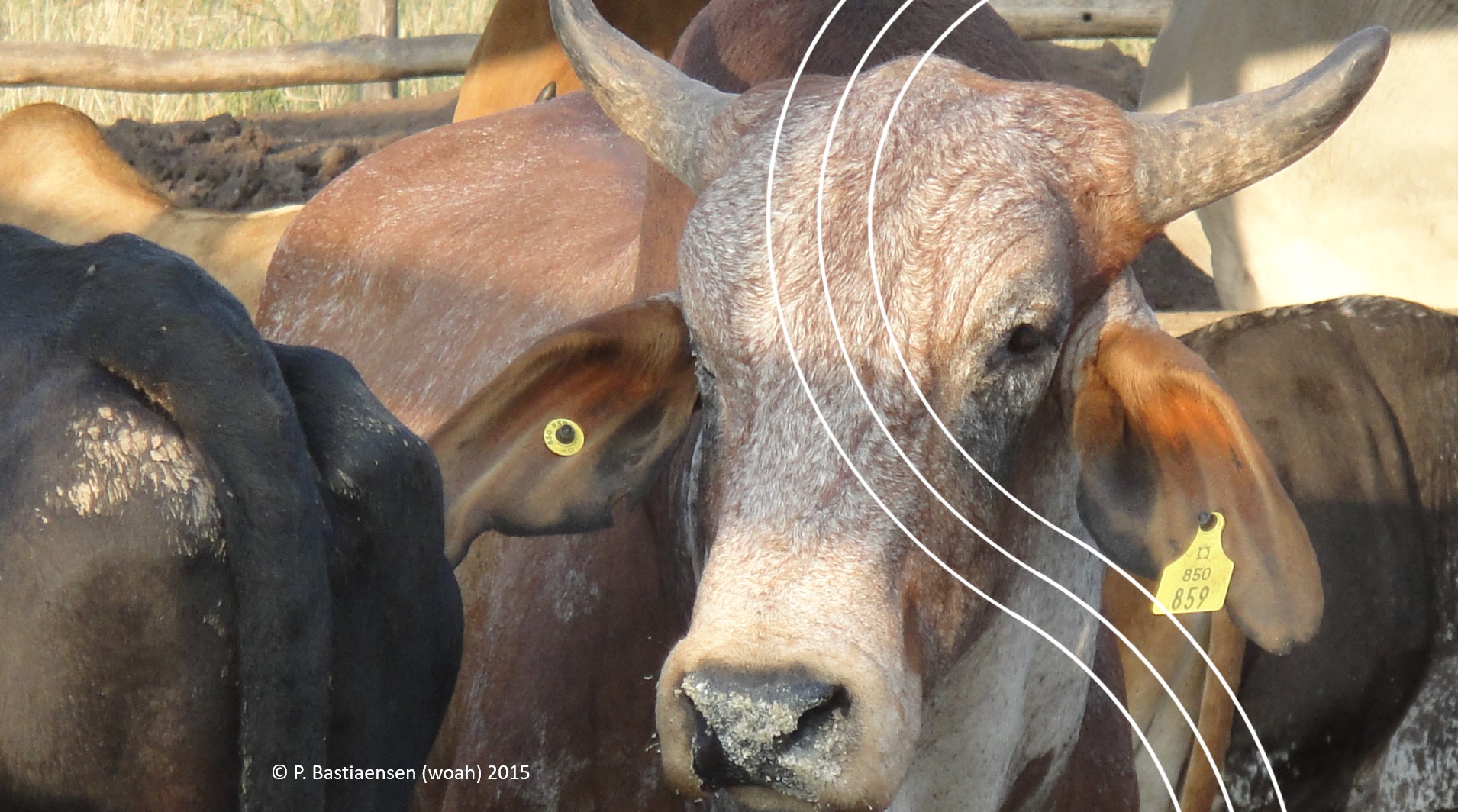The proposed range of activities entails the mainstreaming of several of WOAH’s flagship interventions and programmes in the region, along with several innovations which will be piloted in the target REC (COMESA) for this project.
Activities will be implemented as advisory technical services to the African Union and COMESA instruments and agencies, not directly to be implemented by WOAH (except for proprietary assessment and capacity building tools such as e.g. PVS missions or specific training on WAHIS or official disease status pathways).
WOAH has developed international standards on both the quality of Veterinary Services, as well as technical animal health and veterinary public health management. Two chapters of the WOAH Terrestrial Animal Health Code (the Terrestrial Code) are dedicated to the Quality of Veterinary Services. Based on these principles and standards, WOAH has developed the Performance of Veterinary Services (PVS) Pathway, WOAH’s flagship capacity building platform for the sustainable improvement of national Veterinary Services. The PVS Pathway empowers national Veterinary Services by providing them with a comprehensive understanding of their strengths and weaknesses using a globally consistent methodology based on international standards – a useful external perspective that can reveal gaps, inefficiencies and opportunities for innovation. Thanks to this grant, WOAH will fund PVS Pathway activities on the African continent which will enable the countries to take ownership and prioritise improvements to their animal health system.
As part of the PVS Pathway, WOAH is in particular planning to engage the:
Participation to occasional regional policy or coordination meetings and ad hoc WOAH International Conferences (envisaged in activity 1.1.4)
WOAH Observatory aims at monitoring the implementation of WOAH Standards and identifying barriers to their implementation. It will inform the design of tailored capacity building activities according to identified gaps, encourage adherence to the WOAH standards, and facilitate trade as a result, including in developing countries. This will be done through advocacy for the implementation of standards, identification of barriers to the implementation, and provision of recommendations to overcome those barriers. WOAH Observatory monitors, amongst others, trade-related indicators, including coming from WTO SPS notification information system. When developing its data portal (2024-2025), WOAH Observatory could include filters allowing the data to be shown by RECs; indicators would then become available for COMESA only. This will be explored and assessed against technological and resource constraints.
WAHIS, the refreshed and renovated disease notification platform, is an opportunity to better use data to guide policies and actions for the future. The faster and more intuitive system includes new features, such as extended data mining, customisable data queries and enhanced mapping features and displays. Geographic data linked to epidemiological information strengthens disease traceability and appropriate response. Integration with other databases and platforms for enriched risk assessment makes WAHIS a real-time, reliable source of knowledge and paves the way for more informed policy decisions. The renovated WAHIS was launched in 2021 and will continue to evolve over the coming years, learning from user experience and driven by the intent to provide the best possible animal health data from and to Africa. To increase engagement, training strategies will be reviewed and action plans implemented to improve engagement and reporting by Veterinary Services.
Under its Platform, WOAH is developing its Competency-based Training Framework, today structured around 16 Competency Packages that extensively cover WOAH standards, guidelines and strategies and form the architecture of WOAH Training programmes, both for distance and face-to-face delivery. One Competence Package (n°12) is entirely dedicated to trade and will be populated with approximatively 30 e-modules, mainly to help WOAH Members implement section 5 of the Terrestrial Code. A first batch of 11 e-modules relating to International trade regulatory framework, import risk analysis, Animal Health Status and regionalization, pre-export and import measures and control, will be produced in the next 20 months. (Note: no specific funds have been allocated for the development of eLearning under this project, but the activities undertaken could contribute to production of such materials; project stakeholders will also have access to training materials through the Platform.) WOAH is also elaborating several Training Guidelines in collaboration with its collaborating Centers on Training and Education to frame and ensure the quality of all the training cycle steps; the Guidelines on Learning Needs Assessment (under development) will therefore be of great support to Members to conduct their own learning needs assessment, in particular on trade aspects.
WOAH has initiated the full digitalisation of the PVS Pathway to provide Members, partners and donors with a comprehensive PVS Pathway Information System to improve accessibility of PVS reports, data, and analysis contained therein.
The PVS Evaluation is the first building block of this system. The first phase of the project will include setting the necessary IT infrastructure for the PVS Pathway Information System, developing a one-stop PVS Pathway portal, including a document repository, a search tool, and a login-interface for various accessibility levels. This portal will centralise the storage of PVS Evaluations/Follow-up missions’ derived data in a searchable format, per country, critical competency, keywords, etc. Such a database will greatly enhance the insights from and analysis of PVS Evaluations/Follow-up missions data and will be particularly useful for Regional Economic Communities wishing to engage in regional analyses of PVS Evaluation/Follow-up missions data from their Members or Partner States. Data from other PVS Pathway stages (e.g.. PVS Gap Analysis missions) will gradually be incorporated in the broader PVS Pathway Information System.
Development of the PVS Pathway Information System is already underway. The PVS Evaluation Database and web portal will be a significant milestone for WOAH Members and partners by end-2023, where all PVS Pathway reports will be accessible, along with insight on each Members’ PVS Pathway engagement and progression, along with analysis on strengths, weaknesses, and recommendations for each Critical Competency. The database will bring specific benefits to its users, including Members, partners, and experts.
Following the recommendations of the first international foot-and-mouth disease (FMD) conference held in Asuncion, Paraguay in 2009, a Global FMD Control Strategy was developed under the FAO/WOAH Global Framework for the Progressive Control of Transboundary Animal Diseases (GF-TADs) and released in 2012. The overall objective of the Global FMD Control Strategy is to contribute to poverty alleviation and to improve livelihoods in developing countries, and to protect and further the global and regional trade in animals and animal products. FMD is a GF-TADs for Africa regional priority disease for its 2021 – 2025 Strategy.
The peste des petits ruminants (PPR) Global Control and Eradication Strategy (GCES) was endorsed in April 2015 during the international conference on PPR held in Abidjan, Côte d’Ivoire, with the vision of global eradication by 2030. The FAO and WOAH, through resolutions from their governing bodies, confirmed their commitment to this initiative. This global action was driven by strong evidence that PPR undermines the important role played by sheep and goats in improving rural livelihoods. This programme too is administered under the GF-TADs. PPR is a GF-TADs for Africa regional priority disease for its 2021 – 2025 Strategy.
Recognising the heightened global risk of African swine fever (ASF), and the significant impact of the disease on animal health, food security and national and global socio-economics, the FAO and WOAH were asked to launch a global initiative to control ASF. The aim of the global initiative is to tackle the strategic challenges posed by ASF, promote partnerships, strengthen prevention and preparedness measures and minimise the adverse impacts of the disease. This programme too is administered under the GF-TADs. ASF is a GF-TADs for Africa regional priority disease for its 2021 – 2025 Strategy.
As part of the Quadripartite, WOAH along with the FAO, the WHO and the UNEP, has taken up the global leadership in the fight against antimicrobial use and focuses – through WOAH Strategy on Antimicrobial Resistance and the Prudent Use of Antimicrobials – on the use and misuse, as well as resistance in the livestock sector. WOAH Strategy is aligned with the WHO Global Action Plan and recognizes the importance of a “One Health” approach – involving human and animal health, agricultural and environmental needs.

